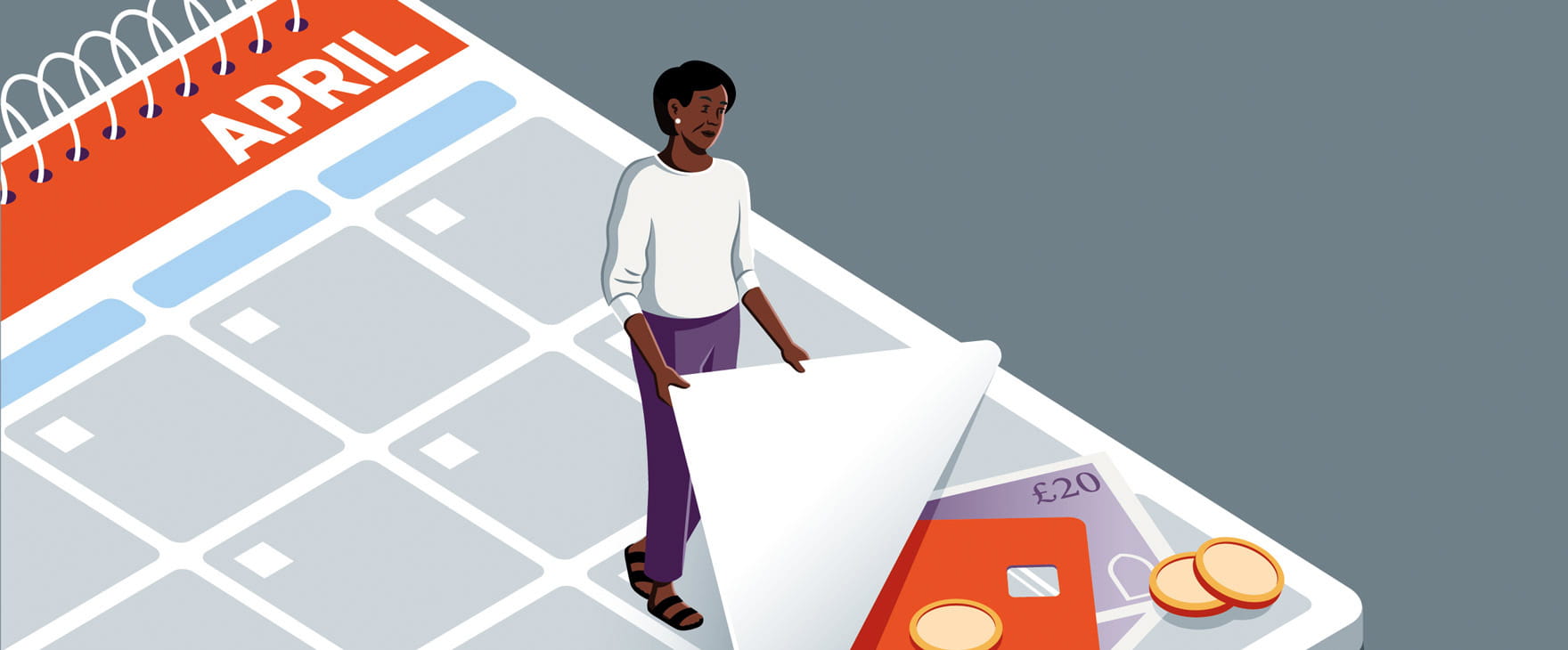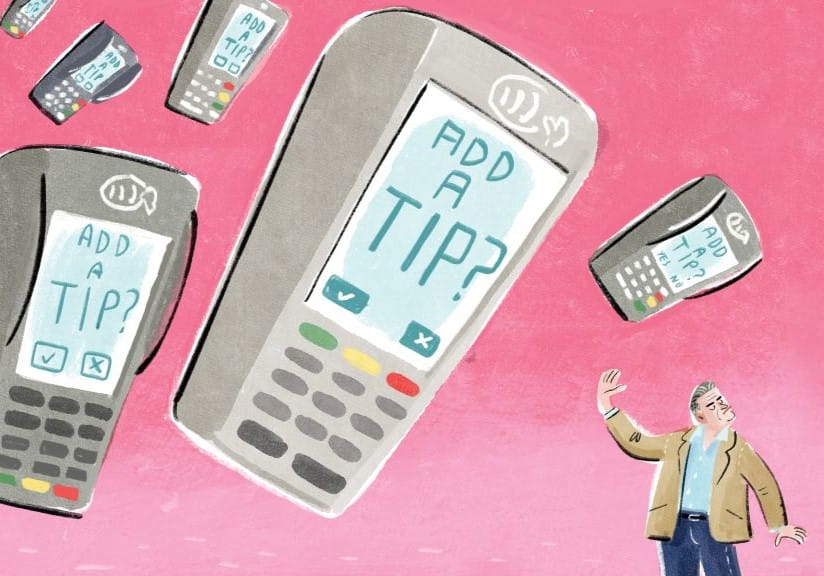Paul Lewis’ Budget warning: Watch out for the taxman’s icy grip
The good, the bad, and the frozen – our money expert explains how the Budget will affect your pension, taxes and savings.

The good, the bad, and the frozen – our money expert explains how the Budget will affect your pension, taxes and savings.

It’s December on Monday. The nights are icy. And the chancellor has just extended the Big Freeze for three more years – not the two years that had been rumoured. In her Budget on Wednesday she announced that the tax-free allowances, which last went up in 2021, will not rise again until 2031. A decade-long Big Freeze.
The annual personal tax-free allowance will stay at £12,570 until April 2031, with higher-rate tax beginning at £50,270 (except in Scotland where it is lower on earnings and pensions) and the highest tax rates will begin at a frozen £100,000 and £125,140 a year.
So every £10 extra in pensions or earnings will have £2 or more snaffled back by HM Revenue & Customs. By the last year of the Big Freeze in 2030/31 HMRC’s icy grip on our money will leave us £54 billion a year poorer than if thresholds had risen with inflation.
As expected, the chancellor told us the state pension would rise with the triple lock – an extra 4.8% on the main rates of old and new pensions. That will make the standard new state pension £241.30 a week or £12,547.60 a year - barely less than the frozen personal allowance. As the state pension rises, the extra tax is taken not from the state pension, which is paid gross, but from your other income.
So your tax code next year will be cut reflecting the extra income that will be taxed. For some pensioners the tax code will be almost zero and for some it will be negative! That is indicated by a K code - the K precedes the code number and indicates tax at more than 20% will be taken off every penny of your other income. People with no other income than the state pension may have to pay tax on it, but from April 2027 the chancellor said they would not have to pay it through any separate assessment. Details awaited.
If you're wondering about having to pay tax on your state pension, the experts at Saga Money have a complete guide to what it means for you.
Frozen rates are not the only tax grab. For the first time in over 40 years unearned income is to be taxed at higher rates than earned income or pensions. From 2027/28, Once you exceed your personal savings allowance (£1,000 a year for basic rate taxpayers and £500 for those on the higher rate) savings interest will be taxed at 22%, not the normal 20%. If you are a higher-rate taxpayer, savings tax will be 42% or for the additional rate it will be 47%. Those rates will also apply in Scotland and raise half a billion pounds a year from savers.
Rental income will be charged at those rates too, but not in Scotland.
There will also be higher rates of tax on dividends: the existing rates uplifted by 2p in the pound everywhere in the UK from April 2026.
The good news is that you can avoid these higher rates by putting what you can afford into a tax-free ISA. The annual allowance will remain at £20,000 into the future. However, from April 2027 people under 65 will only be allowed to put £12,000 of that into a cash ISA. People aged 65 and over will not face that restriction.
If you are feeling the tax burden, the experts at Saga Money have 20 simple ways to pay less tax on your savings

If your home is one of the estimated 165,000 worth more than £2 million, you will pay an annual tax called a 'high value council tax surcharge' from April 2028. It will be £2,500 on £2 million homes and rise in steps to £7,500 on homes worth £5 million or more. It will be collected with council tax but will be a separate levy. If a property is rented out, the owner will pay the surcharge even though the tenant pays the council tax itself. If you cannot afford to pay, then HMRC will let you defer the annual levy until you sell up or die.
The other novel tax is a 3p a mile charge on electric vehicles. Called the electric vehicle excise duty, it will be charged from April 2028 when you pay your car tax (VED). The Government says the average electric car travels 8,000 miles a year, so the new tax will cost an average £240 a year and raise more than £1.25 billion annually from 2028/29. Plug-in hybrids, which can run on both electricity and petrol, will pay half the levy – 1.5p a mile.
Non-electric motorists will also be paying more as the Government is phasing out the 5p cut in fuel duty - which began in 2022 - in three steps from September 2026 to March 2027, and then re-introducing the annual rise in fuel duty from April 2027.
That could add another 2p a litre. VAT is paid on the duty, so from April 2027 petrol and diesel could have an extra 8p tax per litre in the price compared with today. That will bring in another £3.2 billion from motorists over the two years 2027/28 to 2028/29.
The freeze on tax thresholds is also extended to inheritance tax. No rise was planned until 2030 and that has now been extended to 2031. However, the Office for Budget Responsibility, which marks the chancellor’s homework, has revised down the numbers of estates which will pay this hated tax. This year it will be 9,000 fewer than predicted at 32,200, so only one in 20 estates will pay it.
Even after the changes in this Budget and the last, only about one in 11 estates will pay it in 2030/31.
Now the long-awaited Budget has been announced, use our 12-point financial health check to review your tax, pensions and savings for the year ahead
Paul Lewis is a prize-winning financial journalist and presenter of Money Box on Radio 4. He also writes extensively on personal finance and money matters for Saga Magazine, the Financial Times, Money Marketing and a wide variety of other publications.
Paul is the author of numerous books including Beat the Bank, Pay Less Tax and Money Magic. He has won a lifetime achievement award from the Association of British Insurers, and been named Consumer Pension and Investment Journalist of the Year.
View author page

We partner with Co-op Legal Services to offer advice and services for you and your family.


The ultimate guide to Saga Puzzles, full of technical tips, tricks and hints.

With the start of the new financial year on 6 April, our money expert explains the changes to your pension, benefits and taxes.





